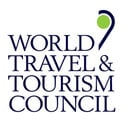Dynapath Triumphs at WTTC’s First-Ever Investors’ Nest
WTTC and Sustainable Hospitality Challenge Celebrate Groundbreaking Innovation

Perth, Western Australia - The World Travel & Tourism Council (WTTC) today announced Nguyen Thao Van from VinUniversity, Vietnam, as the winner of the inaugural Investors’ Nest at its 24th WTTC Global Summit in Perth, Western Australia.
In partnership with the Sustainable Hospitality Challenge (SHC) of the Hotelschool The Hague, this prestigious event showcased visionary solutions from the brightest student minds, showcasing next generation solutions poised to transform the future of hospitality.
The SHC brought together students from over 75 universities worldwide, who competed in regional semi-finals, leading to the selection of the finalists. After the edition winners were announced in Dubai, they, along with a wild card semi-finalist team, joined WTTC to participate in the Investors Nest.
The five finalists—University of West London (UK), VinUniversity (Vietnam), Instituto Profesional Duoc UC (Chile), Cornell University (USA), and University of West Indies (Jamaica)—presented their innovative solutions to the panel during the Global Summit.
The teams’ solutions tackled challenges such as plastic pollution, renewable energy, sustainable construction materials, food waste management, and cultural tourism.
Nguyen Thao Van, with her project Dynapath, impressed a panel of industry leaders and investors, clinching the title at the inaugural Investors’ Nest.
The project transforms plastic waste into high-performance kinetic tiles that generate electricity from foot traffic using piezoelectric technology, offering a sustainable, energy-efficient flooring solution that reduces plastic pollution and provides renewable energy in high-traffic areas like hotels and airports.
Their scalable solution sets a new sustainability standard in the Travel & Tourism sector, showcasing strong market potential and a commitment to reducing the hospitality industry’s environmental impact.
We are incredibly proud of Nguyen and her team, and all finalists for their innovative approach to sustainable hospitality. Dynapath exemplifies the kind of out-of-the-box thinking we need to drive our sector forward.2024 sees the first ever WTTC Investors’ Nest, and although there can only be one winner, I am sure that within the next few years, we will see many of the projects come to life, both the winners and finalists. WTTC President & CEO Julia Simpson
The Investors’ Nest is part of WTTC’s broader effort to support emerging talent and foster innovation that addresses the industry’s biggest sustainability challenges.
This year’s SHC theme called for scalable solutions that redefine hospitality practices and contribute to a more sustainable future.
Judges, including industry heavyweights such as Founder & Senior Managing Director of Certares Management LLC (“Certares”) and WTTC Chair Greg O’Hara; Group CEO of Diriyah Company Jerry Inzerillo; President of American Express Travel, Audrey Hendley; and CEO of
Arsenale Spa, Paolo Barletta.
The judges evaluated the student pitches based on sustainability impact, innovation, market potential, and execution.
Congratulations to Nguyen and the finalists. The innovative and forward-thinking ideas around sustainability are exactly what the travel industry needs to progress. These students are the change agents of their generation. Greg O’Hara, WTTC Chair and Investors Nest judge
We are immensely proud and grateful for the opportunity our students had to present at such a prestigious event as the WTTC Global Summit, and in front of a high-calibre jury of industry leaders and investors.It’s a rare and invaluable experience for these bright minds to showcase their innovative solutions on a global stage, where collaboration between academia and industry plays a vital role. Paul Griep and Stella Van Toor, from Hotelschool The Hague
The four other teams presenting at the WTTC Global Summit included:
- Rahul Dahiya, Marco Palamara, and Andrei-Mihai Iftimie from University of West London, UK: Their project, Algi, integrates algae into wall structures to purify indoor air, reduce CO2, and lower energy consumption, creating a healthier, more sustainable environment while supporting diverse uses like food, biomass, and biofuel.
- Francine Aclan, Emma Doherty, and Roodabeh Elavia, from Cornell University, United States: Their project, Pyro, is a compact appliance that converts food waste into biochar through pyrolysis, providing a sustainable fuel source for live-fire restaurants while reducing wood consumption, food waste, and harmful emissions, thereby promoting environmental and economic sustainability in the hospitality industry.
- Abigaile Forbes, Katrina Chin, Judane Whittaker, and Dedranae Davis, from University of West Indies, Jamaica: Their project, Pzylo, is an innovative fabric made from zeolite-infused cotton and Jamaican bamboo that purifies air by absorbing pollutants and odors, while providing superior insulation and comfort, reducing energy consumption and enhancing indoor air quality for the hospitality industry.
- Isis Maldonado Pereira, from Istituto Profesional Duoc UC, Chile Their project, Migratio, focuses on sustainable travel experiences that connect tourists with indigenous cultures while preserving cultural heritage and supporting local economies.
The WTTC Global Summit, themed Ancient Land: New Perspectives,
brings together top leaders from the public and private sectors to explore the future of Travel & Tourism. Held in the culturally vibrant city of Perth, this year’s event emphasizes collaboration and innovation as key drivers of sustainable growth.
About WTTC
The World Travel & Tourism Council (WTTC) represents the global travel & tourism private sector. Members include 200 CEOs, Chairs and Presidents of the world's leading travel & tourism companies from all geographies covering all industries. For more than 30 years, WTTC has been committed to raising the awareness of governments and the public of the economic and social significance of the travel & tourism sector.
